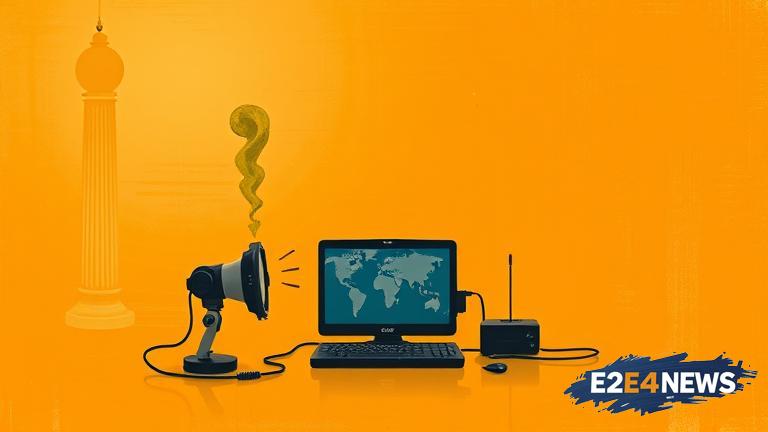The Telecom Regulatory Authority of India (TRAI) has recently released a consultation paper on the technical feasibility of content blocking at internet exchanges. This move has sparked a heated debate on internet freedom and censorship in the country. The paper, titled ‘Technical Feasibility of Content Blocking at Internet Exchanges’, aims to explore the possibilities of blocking content at internet exchanges, which are critical infrastructure for internet connectivity. The TRAI has invited comments from stakeholders on the technical feasibility of content blocking, including internet service providers, content providers, and civil society organizations. The consultation paper highlights the importance of internet exchanges in facilitating internet connectivity and the need to balance the freedom of expression with the need to regulate content. The TRAI has identified several methods for content blocking, including DNS-based blocking, IP-based blocking, and deep packet inspection. However, these methods have raised concerns about their effectiveness, accuracy, and potential impact on internet freedom. The paper also discusses the challenges of content blocking, including the difficulty of identifying and blocking specific content, the risk of over-blocking, and the potential for circumvention. The TRAI has sought comments on the technical feasibility of content blocking, including the costs and benefits of different methods, the potential impact on internet users, and the need for transparency and accountability. The consultation paper has sparked a debate on the role of internet exchanges in content regulation, with some arguing that they should play a more active role in regulating content, while others argue that they should remain neutral. The issue of content blocking has significant implications for internet freedom and censorship in India, where the government has been increasingly seeking to regulate online content. The TRAI’s consultation paper is seen as a significant development in this regard, as it seeks to explore the technical feasibility of content blocking at internet exchanges. The paper has also raised concerns about the potential impact on online businesses, including e-commerce companies and social media platforms, which rely on internet exchanges to operate. The TRAI has emphasized the need for a balanced approach to content regulation, one that takes into account the need to protect freedom of expression while also regulating content that is harmful or objectionable. The consultation paper is open for comments until September 2025, and the TRAI is expected to release its recommendations on the technical feasibility of content blocking at internet exchanges thereafter. The issue of content blocking at internet exchanges is complex and multifaceted, and the TRAI’s consultation paper is seen as an important step towards developing a framework for content regulation in India. The paper has sparked a lively debate on the role of internet exchanges in content regulation, and the need for a balanced approach to content regulation. The TRAI’s recommendations on the technical feasibility of content blocking at internet exchanges are expected to have significant implications for internet freedom and censorship in India. The consultation paper has also highlighted the need for greater transparency and accountability in content regulation, including the need for clear guidelines and procedures for content blocking. The TRAI has emphasized the importance of protecting freedom of expression, while also regulating content that is harmful or objectionable. The issue of content blocking at internet exchanges is not unique to India, and the TRAI’s consultation paper is seen as an important contribution to the global debate on content regulation. The paper has sparked a debate on the role of internet exchanges in content regulation, and the need for a balanced approach to content regulation. The TRAI’s recommendations on the technical feasibility of content blocking at internet exchanges are expected to have significant implications for internet freedom and censorship in India, and will be closely watched by stakeholders around the world.
